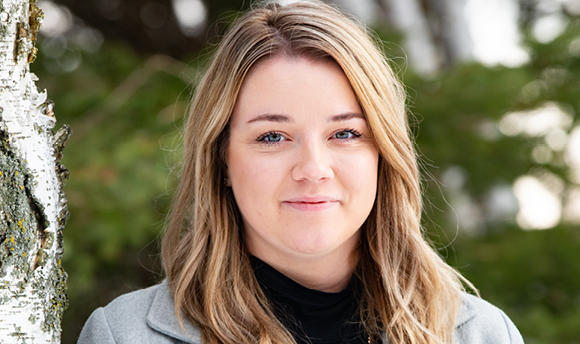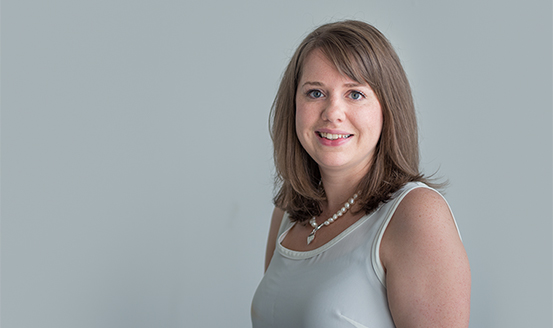Application to this course for September 2024 & January 2025 entry is now closed. Application for September 2025 & January 2026 entry will likely open around October 2024.
Physiotherapy (Pre-Registration) - MSc
If you are a graduate and looking for a fast-track to a new rewarding career, why not consider this MSc in Physiotherapy (Pre-Registration)? Working as a physiotherapist you would deal with human function and movement and help people to achieve their full physical potential.
With innovative and creative approaches to learning and teaching, this course will develop the theoretical, practical, analytical and evaluative skills necessary to work as a physiotherapist.
The course includes a number of practice placements and is delivered full-time over two years. On completion you will be eligible to apply for registration with the Health & Care Professions Council (HCPC) as a physiotherapist.
Why QMU?
- Employability: Our graduates are self-aware, skilled, critical, analytical, reflective and evaluative, independent learners who actually contribute to shaping the future health and wellbeing of the individual and society. The employability of graduates from this long established course is proven both in the United Kingdom and abroad.
- MSc project: When writing your dissertation you will have the opportunity to work with staff with international influence, leading in development of exercise and health and wellbeing on a wide range of cutting edge research opportunities.
- Placements: We have an extensive portfolio of exciting placement opportunities that will enable you to put your learning into practice alongside keen clinical educators to support and encourage students professional development.
- Smaller class sizes than elsewhere: The year group is split into small groups for practical classes and some tutorials. This ensures that individuals receive excellent support and benefit from sharing their experiences with their classmates. There is a strong emphasis on student-directed learning.
- Staff expertise: Staff have a broad range of clinical and research expertise covering all areas of physiotherapy, physiology and public health.
- Variety of teaching and learning methods: The course is well grounded in practice by integrating and applying practical examples throughout the course, for example, case scenarios linked to assignments, vivas and problem-based learning tasks, and visiting lecturers. This integrates placement and coursework and therefore makes learning relevant to practice. We use a variety of innovative teaching methods to make learning engaging and interesting.
- Professional accreditation/registration and more: On completion, you will be eligible to apply for registration with the Health & Care Professions Council (HCPC) as a physiotherapist. You will also be eligible to apply for membership with the Chartered Society of Physiotherapy.
Studying MSc Physiotherapy (Pre-Registration)
Physiotherapy (Pre-Registration) - MSc: More information and what you will achieve
Physiotherapists use physical approaches to promote, maintain and restore wellbeing. As a student on this course, you will complete a range of modules and periods of practice placement. You will learn how to synthesise evidence from current practice and research to develop an in-depth critical knowledge and understanding of the physiotherapy profession. Furthermore, you will be able to demonstrate a critical awareness of current issues within the provision of health and social care, and will be capable of demonstrating leadership in both personal and professional development.
How will I be taught?
Structure and exit awards
120 M-level credits plus a further 240 credits at SCQF levels 9 and 10.
You must complete the full MSc (360 credits*) to be eligible to register with the Health & Care Professions Council.
Teaching, learning and assessment
We use various innovative and creative methods of teaching throughout the modules to suit different learning styles and preferences some of these include bodypainting to consolidate anatomical knowledge and use of the simulation suite to practice ‘real-life’ scenarios before attending placement. A variety of assessment methods are used including written assignments, practical viva exams, presentations and reflective portfolios. Practice-based learning is a major component of the course, comprising more than 1,000 hours.
Placements
In your first semester you will complete a two-week introductory placement. At the end of Year One you will undertake a further two six-week placements. A third six-week placement will take place in semester 2 of Year Two. In the final semester, you will undertake a six-week placement and a five-week elective placement. Any additional travel and accommodation costs associated with placements will be borne by the student.
Placements will take place at practice sites across Scotland and will be allocated by QMU with the exception of the five-week elective placement, which is arranged by the student.
Teaching hours and attendance
This is a full-time course and students are expected to be available 9am-5pm Monday to Friday. Students should expect to study for an average of 40 hours per week. Timetabled class contact is approximately 15-20 hours per week.
Specialist facilities
QMU offers a variety of modern spaces for use by both our Master of Physiotherapy (MPhys) and MSc Physiotherapy (Pre-Registration) courses. Two large practical rooms are utilized for teaching and development of clinical skills. Students have access to numerous anatomy models which are incorporated into their learning during practical sessions and can be used during self-directed study sessions. Our physiotherapy students also utilize QMU's clinical simulation suite which is equipped to practice both hands on skills and communication in a simulated real-life environment. The courses also have access to a motion analysis lab and human performance lab.
Class sizes
Normally there are around 50-75 students enrolling on the course each year.
Teaching staff
You can read more about the teaching staff on this course at the bottom of this page. Please note that teaching staff is subject to change.
Modules
Modules are a combination of M-level and UG-level.
Year One will include:
- Foundations for Physiotherapy (40 credits): This module aims to apply students’ knowledge of anatomy and physiology as a foundation to physiotherapy practice and introduce basic physiotherapy observation and assessment skills. Students will develop problem solving and transferable skills to inform and to evaluate physiotherapy practice
- Preparing for Practice as an AHP (20 credits): This module aims to explore factors that shape and influence the provision of health and social care by the allied health professions.
- Rehabilitation Principles (20 credits): This module aims to develop understanding of the theoretical and practical knowledge and skills required for physiotherapy in a rehabilitation context.
- Neurological Physiotherapy (20 credits): This module aims to develop knowledge, clinical skills, practical skills and the ability to apply evidence for the safe, effective and evidence based assessment and management of people living with neurological conditions in acute, rehabilitation and long-term management settings. It also aims to explore the role and skills of the physiotherapist within the multidisciplinary team and selected environments outwith the hospital setting, in the management and rehabilitation of people with neurological disease.
- Musculoskeletal Physiotherapy 1 (20 credits): This module aims to: develop students’ knowledge base and clinical skills necessary for effective assessment and management of people with: neuro musculoskeletal health conditions of the upper and lower limbs; neuro musculoskeletal spinal conditions; and develop students ability to assess and manage individuals with these health conditions, utilising an approach which is critically reasoned, reflective, person-centred and evidence-based.
- Cardiorespiratory Physiotherapy (20 credits): The aims of this module are to develop the student’s knowledge base and clinical skills for the safe, effective and evidence based assessment and management of the an individual with a cardiorespiratory condition/s in both the acute and rehabilitation setting. To develop a critical understanding of some of the psychosocial issues that influences the multi disciplinary management of individuals with cardiorespiratory condition/s.
Year Two will include:
- Musculoskeletal Physiotherapy 2 (20 credits): The aim of this module is to develop and enhance the student's ability to assess, clinically reason and plan management approaches for people with complex presentations of musculoskeletal conditions.
- Understanding and Appraising the Evidence for Practice (20 credits): The aim of the module is to support the learner to develop an in-depth understanding of approaches to research, to apply knowledge in order to critically appraise evidence and to form reasoned conclusions and to develop the research skills and knowledge necessary to undertake an independent research project.,
- Advancement of Clinical Management (20 credits): This module aims to provide learners with the opportunity to advance their knowledge, skills and practices in the multi-system assessment and management of different clinical populations within a biopsychosocial context.
- Public Health Practice for Physiotherapists (20 credits): The aim of the module is to develop a critical understanding of public health principles and theory and to integrate those principles into physiotherapy practice OR Leadership and Enterprise (20 credits): This module aims to critically evaluate the concepts of leadership and leading change, intra/entrepreneurship and innovation within the health and social care sector and explore opportunities for leading and developing enterprising ideas for health and well-being.
- Masters' Research Project (40 credits)
Across the two years, you will complete 31 weeks of practice-based learning placements comprising over 1050 hours.
NB The modules listed are correct at time of posting (October 2023) but are subject to change. In the event that modules change, QMU will seek to use reasonable endeavours to ensure that there is no detrimental impact on students.
Career opportunities
The majority of graduates work as physiotherapists within the National Health Service, either in major hospitals or in the community. With further post-registration experience, graduates can choose to specialise in a particular area, which may include: sports, neurology, paediatrics, respiratory, orthopaedics or private practice. Some graduates choose to follow a research career path. A percentage of students on graduation will apply for overseas accreditation in countries such as Canada, Ireland and Australia.
Physiotherapy (Pre-Registration) - MSc: Entry requirements and application information
Entry requirements
A second class honours degree in any discipline. However, where the undergraduate degree is not science or engineering based, applicants should be able to be able to demonstrate research skills. This may have been achieved through completion of a research project as part of the undergraduate degree.
This course is not suitable for those already holding a physiotherapy qualification. Applicants from North America will normally be expected to have achieved a minimum GPA equivalent to 60% in their undergraduate degree.
Demonstration of understanding of the scope of the physiotherapy profession is essential.
International: You will be required to take an IELTS test receiving an overall score of 7.0 and no individual component score below 6.5.
Other requirements
A satisfactory criminal records check from the Protection of Vulnerable Groups (PVG) Scheme, an occupational health check and personal indemnity insurance (normally through membership of the professional body) are required.
Other costs
- The cost of professional indemnity insurance is the responsibility of the student. For more information on this, visit the PG 2024 fees page on our website.
- The additional costs associated with placement travel and accommodation are the responsibility of the student. Students who receive SAAS funding may be able to claim for some of these expenses to be reimbursed.
- Uniform, PVG and badge costs – please see PG 2024 fees page on our website.
Disability/health conditions
If you have a disability, long-term physical or mental health condition, or learning disability, it should not stand in the way of your studying at QMU. However, if you are not sure whether your disability might be a barrier in your studies or in relation to the professional standards, please contact the disability service who will be able to have a conversation with you about reasonable adjustments and supports available to you.
Applying for this course
Application for September 2024 entry is now closed.
Application deadline
31 January 2024
Terms and Conditions
The delivery of this course is subject to the terms and conditions set out in our 2023/24 Entry - Terms and Conditions (Postgraduate).
More information and QMU contacts
Contact Sarah Flinders (Programme Leader) or contact Admissions
Opportunities to meet us
Funded places
Funding was available for Scottish Domiciled students applying for September 2023 or January 2023 entry from the NHS Scotland Physiotherapy Funded Places Scheme.
Successful students received payment of course fees for two years, and 50% practice-based learning placements located within the host health board.
It has not been confirmed (October 2023) if this will be available for September 2024 or January 2025 entry.
Please see the NHS website for more information on. If you have any queries, you should contact the NHS directly. .
Become your best you: study at QMU
Course Overview
Engage with the Team
A Student Story
Useful Links
Join us at one of our Postgraduate Open Events
Find out about online and in-person opportunities to meet with us to find out more about our postgraduate courses and study at QMU.
Postgraduate Open Events - More Info and BookingsCourses You Might Also Like
- MSc Art Psychotherapy
- MSc Diagnostic Radiography (Pre-Registration)
- MSc Dietetics (Pre-Registration)
- MSc Music Therapy
- MSc Occupational Therapy (Pre-Registration)
- MSc Play Therapy
- MSc Podiatry (Pre-Registration)
- MSc Speech and Language Therapy (Pre-Registration)
- MSc Therapeutic Radiography (Pre-Registration)
- MSc Audiology (Pre-Registration)








